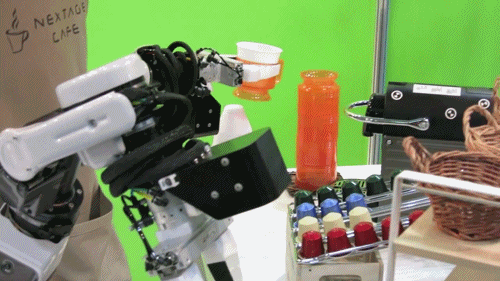Mark Bittman of the New York Times, perhaps distracted by a particularly succulent cantaloupe, isn’t nearly the first to argue that technological unemployment may soon reach its tentacles into our pockets. Bittman urges for Guaranteed Basic Income, something Richard Nixon tried, if unsuccessfully, to bring into being. The opening of “Why Not Utopia?“:
SOME quake in terror as we approach the Terminator scenario, in which clever machines take over the world. After all, it isn’t sci-fi when Stephen Hawking says things like, “The development of full artificial intelligence could spell the end of the human race.”
But before the robots replace us, we face the challenge of decreasing real wages resulting, among other factors, from automation and outsourcing, which will itself be automated before long. Inequality (you don’t need more statistics on this, do you?) is the biggest social challenge facing us. (Let’s call climate change, which has the potential to be apocalyptic rather than just awful, a scientific challenge.) And since wealthy people don’t spend nearly as high a percentage of their incomes as poor people do, much wealth is sitting around not doing its job.
The result is that we’re looking at fewer jobs that pay the equivalent of what an autoworker or a teacher made in the ’60s and ’70s. All but a lucky few will either have the kind of service jobs that are now paying around $9 an hour, or be worse off.
And if robots can think, be creative, teach themselves, beat humans at chess and even Jeopardy, flip burgers, take care of your aging parent, plant, tend and harvest lettuce, drive cars, deliver packages, build iPhones and run warehouses — Amazon’s “Kiva” robots can carry 3,000 pounds, stock shelves and select and ship packages — it’s hard to imagine what these jobs might be.
Welcome to the Brave New World, one featuring even fewer haves and more have-nots than the current one. The winners and losers are the same, but the polarity is even more extreme.•

